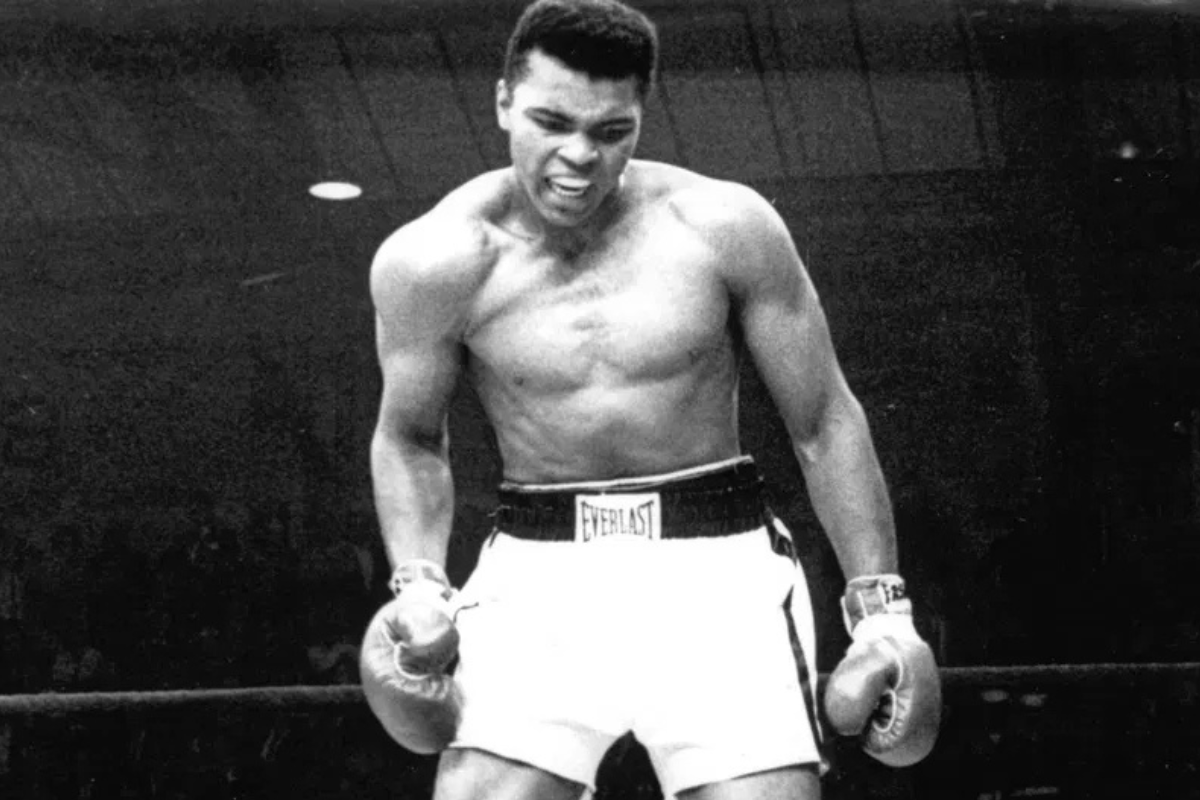
Imago
Credits: IMAGO

Imago
Credits: IMAGO
Muhammad Ali. Say the name out loud and you feel it — the weight, the history, the sheer electricity. The man didn’t just win fights; he owned moments, changed culture, and turned himself into something boxing had never seen before. He was bigger than belts. He was bigger than boxing.
Watch What’s Trending Now!
But here we are, decades later, and Evander Holyfield — a legend in his own right — has thrown down the gauntlet. In a recent Instagram clip shared by fttvboxing, Holyfield puffed his chest and said: “I’m the only four-time heavyweight champion of the world, but they’re still talking about Ali when I broke his record. They keep saying Ali is the best fighter—no, I am.”
And you know what? Credit to Holyfield. He’s “The Real Deal.” He fought everyone, never ducked a soul, and became the only man to tame Mike Tyson twice. But let’s be honest: breaking down the Ali vs. Holyfield GOAT debate is like comparing a Bentley to a Bugatti. Both special, but one’s simply built different.
ADVERTISEMENT
Muhammad Ali boasts a stronger resume than Evander Holyfield.
Holyfield fought 57 times: 44 wins, 10 losses, 29 knockouts. He captured belts in two divisions, became undisputed during the three-belt era, and always carried himself like a warrior. Stat sheet? Beautiful.
Now Ali? Sixty-one fights. Fifty-six wins. Only five losses. Thirty-seven knockouts. Oh, and by the way — three-time lineal heavyweight champion before the WBA and IBF politics even mattered. He didn’t just beat greats; he humbled icons: Liston, Frazier, Foreman. Guys who looked unbeatable until Ali made them crumble.
ADVERTISEMENT
So yes, Holyfield broke a “record.” But Ali built the pedestal on which every other heavyweight stands.
Top Stories
Fact Check: Is Anthony Joshua Being Flown to the UK by Private Jet for Car Crash Treatment?

“RIP”: Mike Tyson’s Son, Jake Paul, and Others Send Prayers as Anthony Joshua-Linked Car Crash Kills Two

Is Anthony Joshua Injured? Nigerian Officials Break Silence on Boxer’s Health and Reason Behind Accident

“Rest in Peace”: Condolences Pour In as Legendary Coach Freddie Roach Mourns Personal Loss

Who Are Latz and Sina? Anthony Joshua’s Relationship With Two People Who Died in Car Crash

View this post on Instagram
ADVERTISEMENT
Also, Ali was the undisputed heavyweight champion from 1974 to 1978. He held the WBA and Ring heavyweight titles from 1978 to 1979. Beyond the ring, he was honored as Sportsman of the Century by Sports Illustrated and Sports Personality of the Century by the BBC. That’s a recognition that many didn’t achieve. So, while Holyfield may have a slight advantage in terms of championship reigns, Ali still takes the crown when we look at the overall record.
And it’s not only Muhammad Ali’s performances inside the ring that made him the icon he is today. His contributions to his country and community also played a defining role in cementing his status as one of the greatest of all time. Now that we’ve seen who held the upper hand in terms of records, let’s turn our attention to the impact they created outside the sport.
ADVERTISEMENT
The legendary fighter remains a timeless cultural icon
We know Ali from his accomplishments inside the ring, but his journey outside of it—and the impact he made—truly propelled him to superstardom. In the 1960s, the Kentucky native made a significant decision in his life. He rejected his “slave name” and changed it from Cassius Clay to Muhammad Ali by embracing the Nation of Islam, although he later disavowed the group in the 1970s.
But that’s not all. Ali also refused to be drafted into U.S. involvement in the Vietnam War, which made him one of the most anti-establishment figures of his time. Because of the heavyweight fighter’s strong stance against the government, he became one of the most criticized men in the country for his views. However, he battled through it all and ultimately became an icon for the people.
Ali quickly became a source of inspiration for African Americans, who found a powerful voice in the boxer. Soon after, he began openly preaching against racism, which brought him further resistance from is undoubtedly filled with in-ring glory. So, when it comes to creating a lasting impact on people’s lives beyond boxing, he has not reached the same level of influence that Ali achieved.
ADVERTISEMENT
Although both heavyweights have left their mark on the entertainment industry, their influence differs greatly. While Evander Holyfield appeared in WWE and various television shows, Muhammad Ali’s love for poetry left a deeper cultural imprint, particularly on Black poetic traditions. His playful rhyme schemes and sharp wordplay went on to influence early rap music, with many even regarding him as “the first rapper.” In this sense, too, Ali stands out as a far greater cultural icon than Holyfield. But the story doesn’t end there.
His influence stretches far beyond boxing into other sports
Well, just like the points mentioned earlier, Muhammad Ali played a significant role in influencing other athletes, especially those in combat sports. His signature style of trash-talking is still widely used in heated press conferences in both boxing and mixed martial arts. And, Conor McGregor serves as a prime example, becoming famous for mental warfare very similar to what the late great heavyweight used to do.
ADVERTISEMENT
To be fair, Evander Holyfield also inspired generations of athletes, particularly by going up against Mike Tyson twice. However, he was never as charismatic as Ali in his prime. In terms of fan following and creating a distinctive public image, the Kentucky native was far ahead. When we look closely, Muhammad Ali left his mark not only inside the ring but also outside of it—a legacy that transcends mere material achievements.
Evander Holyfield is an all-time great. But Muhammad Ali isn’t just “all-time.” He’s for all time.
And that’s why, when we talk about the GOAT, Holyfield’s voice deserves to be heard — but Ali’s name will always echo louder.
ADVERTISEMENT
ADVERTISEMENT
ADVERTISEMENT
ADVERTISEMENT

